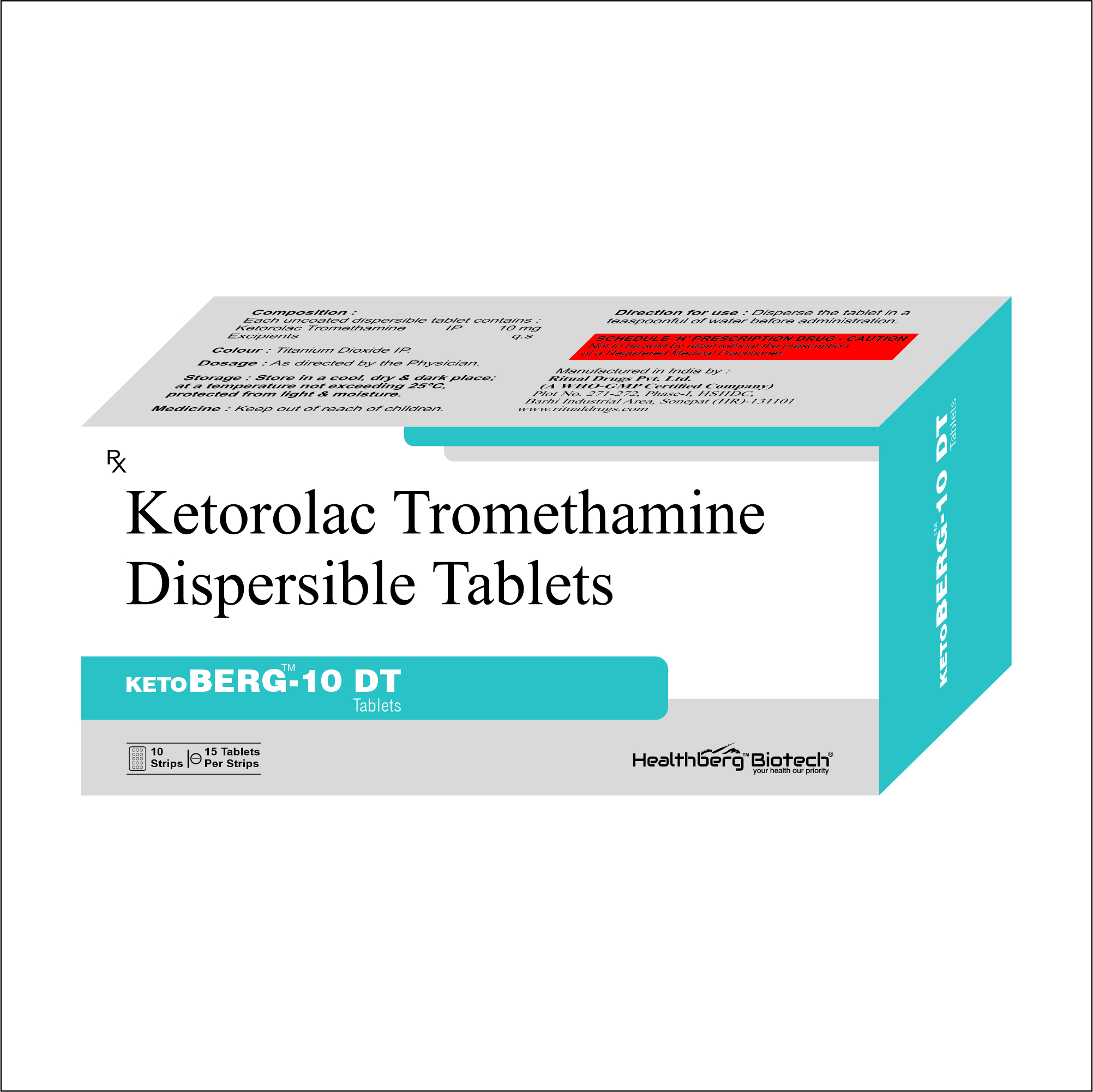Ketorolac tromethamine is a nonsteroidal anti-inflammatory drug (NSAID) that is used to manage moderate to severe pain. It is available in various formulations, including oral tablets. The 10 mg DT (disintegrating tablet) form is designed to dissolve quickly in the mouth without the need for water. It’s important to note that ketorolac should only be taken under the guidance of a healthcare professional due to its potential side effects and interactions.
Ketorolac Tromethamine 10 mg DT Tablets:
- Ketorolac Tromethamine: A nonsteroidal anti-inflammatory drug (NSAID) used for pain relief.
Uses:
- Short-Term Pain Relief: Ketorolac is prescribed to manage short-term, moderate to severe pain after surgery, injury, or medical procedures.
- Postoperative Pain: It can be used to relieve pain following surgical procedures, such as dental extractions, orthopedic surgeries, or minor surgical interventions.
- Injury-Related Pain: Ketorolac may be prescribed for pain resulting from injuries, such as fractures, sprains, or strains.
- Renal Colic: It can be used to manage the acute pain associated with renal colic (kidney stones).
- Migraine: Ketorolac may be used to provide relief from acute migraine attacks.
Problems and Concerns:
- Gastrointestinal Effects: NSAIDs like ketorolac can cause gastrointestinal side effects such as stomach pain, ulcers, bleeding, and indigestion.
- Kidney Function: Ketorolac can impact kidney function, especially when used for an extended period or in individuals with pre-existing kidney conditions.
- Bleeding Risk: Ketorolac may increase the risk of bleeding and should be used with caution in individuals with bleeding disorders or those taking blood-thinning medications.
- Cardiovascular Risks: NSAIDs have been associated with an increased risk of cardiovascular events, particularly when used for prolonged periods or at higher doses.
- Allergic Reactions: Allergic reactions to ketorolac are possible, although they are relatively rare.
- Drug Interactions: Ketorolac can interact with other medications, including other NSAIDs, anticoagulants, and certain medications that affect kidney function.
- Asthma and Allergies: Individuals with asthma or a history of allergies, especially to other NSAIDs, may be at an increased risk of allergic reactions.
- Dosage and Duration: Ketorolac is usually prescribed for short-term use due to its potential side effects. Prolonged use should be avoided.
Consultation with Healthcare Provider:
If you are prescribed ketorolac tromethamine 10 mg DT tablets, it’s important to consult a healthcare provider. They will assess your pain condition, discuss potential benefits and risks, and guide you on the proper dosage and duration of use. Regular follow-up appointments are important to monitor your response and address any concerns that may arise during the course of treatment. If you experience severe side effects or adverse reactions, seek medical attention immediately.
